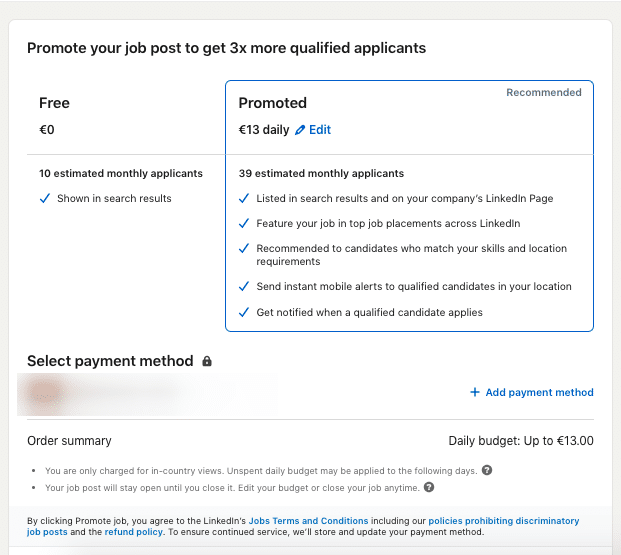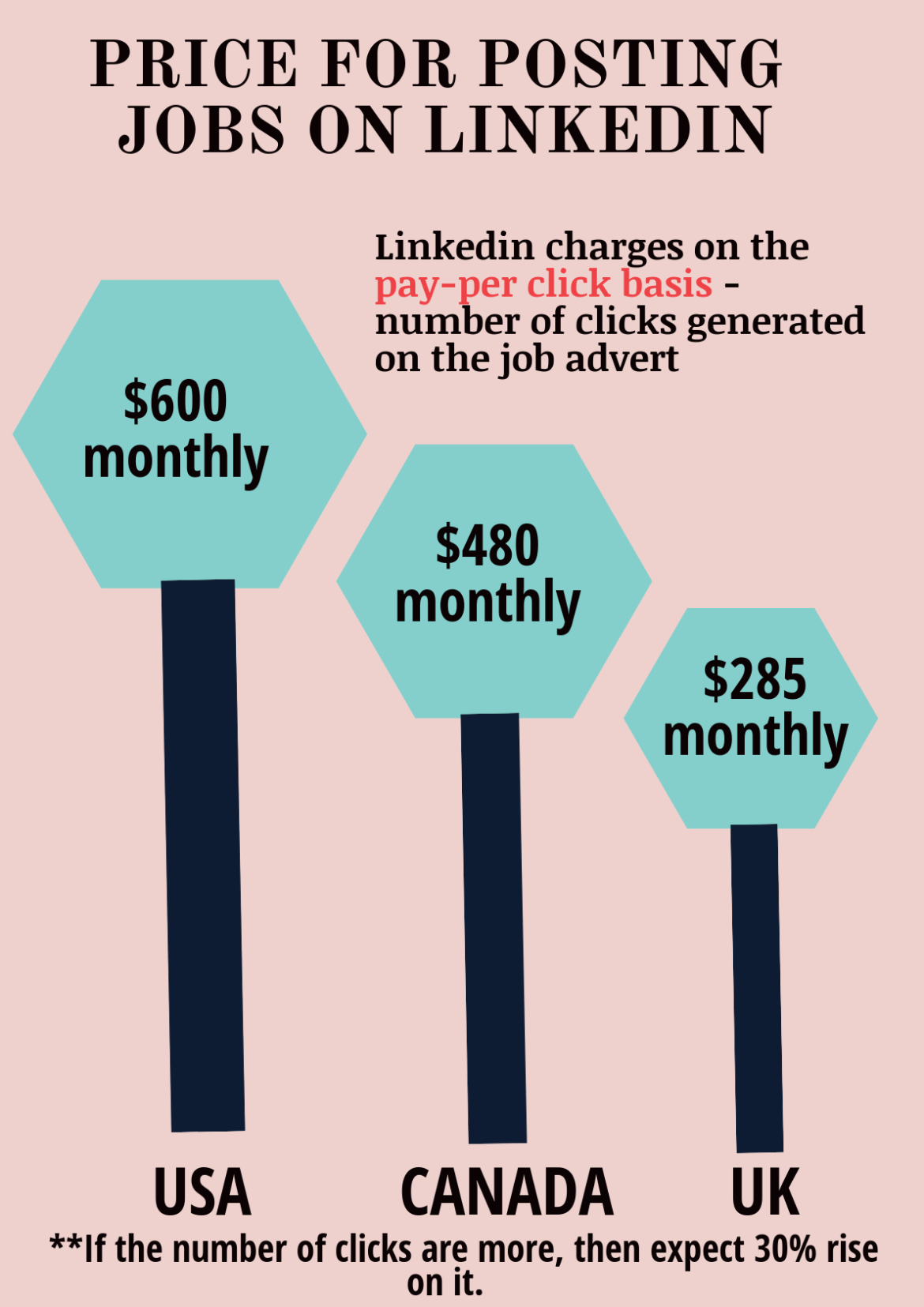LinkedIn does not pay users for posts. Instead, the platform focuses on enhancing professional networking and career growth.
LinkedIn serves as a powerful tool for professionals, providing opportunities to connect, share ideas, and showcase expertise. Unlike other social media platforms that offer monetization options, LinkedIn prioritizes content engagement over direct financial rewards. Users can gain visibility and establish authority by sharing valuable insights and participating in discussions.
This helps build a strong personal brand and attract potential employers or clients. While there’s no payment for posts, the benefits of increased networking and career advancement can be significant. Understanding how to leverage LinkedIn effectively can lead to valuable opportunities in the professional realm.
The Linkedin Ecosystem
LinkedIn is a unique social platform. It connects professionals across various industries. Understanding its ecosystem helps users maximize their potential.
The platform emphasizes networking, job searching, and brand building. Users share insights, experiences, and knowledge.
The Purpose Of Linkedin
LinkedIn serves several key purposes:
- Networking: Connect with peers and industry leaders.
- Job Searching: Discover job opportunities and companies.
- Brand Building: Establish a professional online presence.
- Content Sharing: Share valuable insights and articles.
Content Creation On Linkedin
Content plays a crucial role on LinkedIn. Users can create various types of content:
- Posts: Short updates or thoughts.
- Articles: In-depth pieces on specific topics.
- Videos: Engaging visual content.
- Images: Share photos or infographics.
High-quality content attracts attention. It can lead to more connections and opportunities.
Unlike other platforms, LinkedIn does not pay users for posts. Users gain visibility and networking opportunities instead.
| Content Type | Engagement Level |
|---|---|
| Posts | High |
| Articles | Medium |
| Videos | Very High |
| Images | High |

Credit: www.linkedhelper.com
Monetization Myths And Realities
Many people wonder if LinkedIn pays for posts. The reality is more complex. Understanding the myths and facts is essential for anyone seeking to earn money online.
Common Misconceptions
Several myths surround LinkedIn’s monetization opportunities. Here are some of the most common:
- Myth 1: LinkedIn pays users for every post.
- Myth 2: High engagement guarantees payment.
- Myth 3: You can earn money just by sharing content.
These misconceptions can lead to disappointment. LinkedIn does not have a direct payment model for posts.
Real Ways To Earn
While LinkedIn does not pay for posts, there are ways to monetize your presence:
- Promote Your Services: Use your profile to attract clients.
- Affiliate Marketing: Share products related to your niche.
- Lead Generation: Use posts to generate leads for your business.
- Sponsored Content: Collaborate with brands for paid posts.
| Method | Description |
|---|---|
| Promote Your Services | Attract potential clients with your expertise. |
| Affiliate Marketing | Earn commissions by sharing products. |
| Lead Generation | Use posts to find new business opportunities. |
| Sponsored Content | Get paid by brands for relevant posts. |
Focus on building a strong network. This can lead to various income opportunities. Engage with your audience regularly for better results.
Direct Pay For Posts: Fact Or Fiction?
Many users wonder about LinkedIn’s payment policies. Does LinkedIn pay for posts? The answer is complex. Let’s explore the facts and fiction behind this topic.
Linkedin’s Official Stance
LinkedIn does not directly pay users for posts. The platform focuses on professional networking and career growth. Here are some key points about their stance:
- No Direct Payments: LinkedIn does not offer financial compensation for posts.
- Engagement Over Earnings: Users gain visibility and connections.
- Content Promotion: Sponsored content is available for businesses.
LinkedIn encourages users to share valuable insights. This helps build a strong professional brand. Users can benefit from increased visibility. However, direct payment remains a myth.
Case Studies And User Experiences
Many users share their experiences on LinkedIn. Some have gained opportunities through engaging content. Here are a few noteworthy examples:
| User | Experience |
|---|---|
| Jane Doe | Gained a job offer after a viral post. |
| John Smith | Increased followers by sharing industry insights. |
These stories highlight the power of engagement. Users do not receive direct payment, but opportunities arise. Networking and building relationships are key benefits.
In summary, LinkedIn does not pay for posts. Users can gain visibility and connections. This can lead to new opportunities and career growth.

Credit: sharonhh.com
Linkedin’s Creator Accelerator Program
LinkedIn’s Creator Accelerator Program aims to support content creators. This program helps users grow their audience and enhance their skills. It provides valuable resources for those looking to create engaging content.
Program Goals
The Creator Accelerator Program focuses on several key goals:
- Empowering Creators: Help creators build their brand.
- Fostering Community: Encourage connections among creators.
- Enhancing Skills: Provide training and resources for content creation.
- Supporting Innovation: Promote new ideas and trends in content.
Participant Benefits
Participants in the program enjoy numerous benefits:
| Benefit | Description |
|---|---|
| Funding Opportunities | Access to grants and financial support for projects. |
| Exclusive Resources | Tutorials and guides to improve content quality. |
| Networking | Connect with industry experts and fellow creators. |
| Visibility Boost | Increased exposure on LinkedIn’s platform. |
Joining the Creator Accelerator Program can significantly enhance your content creation journey. It offers tools and connections to help you thrive.
Alternative Revenue Streams For Linkedin Users
LinkedIn offers diverse opportunities for users to generate income. While direct payment for posts is not available, users can tap into various revenue streams. These avenues leverage professional expertise and networks effectively.
Leveraging Professional Networks
Building a strong network on LinkedIn opens many doors. Users can connect with industry leaders and potential clients. Here are some ways to monetize these connections:
- Networking Events: Organize or attend events to meet new contacts.
- Job Referrals: Refer others for job opportunities. Earn bonuses for successful placements.
- Collaborative Projects: Partner with others to work on projects. Share profits based on contributions.
Strong connections can lead to lucrative opportunities. Engage actively to maximize your potential.
Offering Consulting Services
Many professionals use LinkedIn to offer consulting services. This method allows users to share their knowledge and skills. Here are some steps to get started:
- Define Your Niche: Identify your area of expertise.
- Create a Service Package: Outline what you offer and the pricing.
- Promote Your Services: Use posts and direct messaging to advertise.
- Collect Testimonials: Request feedback from clients to build credibility.
Consulting can provide significant income. Use your profile to showcase your skills.
The Role Of Sponsored Content
Sponsored content plays a significant role on LinkedIn. It allows brands to reach specific audiences. Users see posts that are relevant to their interests. Companies can promote their products or services effectively.
Partnering With Brands
Brands often collaborate with LinkedIn users for sponsored content. This partnership benefits both parties. Here’s how it works:
- Brands select influencers or content creators.
- They provide guidelines and promotional materials.
- Creators produce engaging posts about the brand.
- Sponsored posts reach a wider audience on LinkedIn.
These partnerships help brands build trust. Users connect with authentic voices. Sponsored content feels more relatable.
Creating Sponsored Posts
Creating sponsored posts requires strategy and creativity. Follow these steps to create effective content:
- Identify your target audience.
- Choose a relevant topic that resonates.
- Use eye-catching visuals.
- Write clear and engaging copy.
- Include a strong call to action.
Brands can also track engagement. This helps refine future campaigns. Sponsored posts can boost visibility and drive traffic.
| Benefit | Description |
|---|---|
| Increased Reach | Target specific audiences effectively. |
| Brand Awareness | Enhance visibility through engaging content. |
| Improved Engagement | Encourage interaction with potential customers. |
Sponsored posts are a powerful tool. They can generate leads and drive sales. Brands leverage this feature to grow their presence.
Linkedin Newsletters And Articles
LinkedIn offers creators a powerful way to share content. Newsletters and articles help professionals engage with their audience. Creators can build a following while showcasing expertise.
Engagement And Monetization
LinkedIn allows creators to engage users through newsletters and articles. Readers can subscribe to newsletters for updates. This builds a loyal audience and increases interaction.
- High Engagement: Readers receive notifications for new content.
- Direct Feedback: Comments and reactions help creators improve.
- Increased Visibility: Articles can reach a wider audience.
Currently, LinkedIn does not directly pay for posts. However, creators can monetize through other means:
| Monetization Method | Description |
|---|---|
| Sponsored Content | Work with brands to share sponsored posts. |
| Consulting Services | Offer expertise based on your articles. |
| Affiliate Marketing | Promote products and earn commissions. |
Best Practices For Creators
To maximize success, follow these best practices:
- Consistency: Post regularly to keep your audience engaged.
- Quality Content: Focus on valuable and informative topics.
- Engage with Readers: Respond to comments and messages.
- Use Visuals: Add images and videos to enhance articles.
- Promote Your Work: Share your newsletter on other platforms.
By following these tips, creators can build a strong presence on LinkedIn. Engaging content leads to more followers and potential monetization opportunities.
Future Of Linkedin And Content Monetization
The future of LinkedIn is bright, especially for content monetization. Many users wonder, “Does LinkedIn pay for posts?” While the platform hasn’t fully embraced direct payments, it is evolving. LinkedIn aims to reward valuable content. Creators are finding new ways to monetize their expertise.
Linkedin’s Evolving Features
LinkedIn constantly updates its features to enhance user experience. Here are some key developments:
- LinkedIn Live: Stream live content to engage followers.
- LinkedIn Stories: Share short, engaging videos or images.
- Newsletters: Build a subscriber base for regular updates.
- LinkedIn Groups: Foster community around shared interests.
These features help creators connect with their audience. They also offer potential income opportunities through sponsorships and partnerships.
Predictions For Content Creators
Experts predict exciting changes for content creators on LinkedIn:
- Increased Revenue Streams: More ways to monetize content.
- Brand Partnerships: Companies will seek collaborations.
- More Analytics: Better tools to track engagement and growth.
- Community Building: Focus on creating loyal followings.
Content creators should adapt to these trends. Understanding LinkedIn’s evolving landscape is essential. The future holds promise for those who invest time and effort.

Credit: www.linkedin.com
Frequently Asked Questions
Does Linkedin Pay Users For Posts?
LinkedIn does not directly pay users for posts. However, it offers opportunities for monetization through sponsored content and partnerships. Users can leverage their posts to attract attention from brands and clients, which can lead to paid collaborations or consulting gigs.
Can I Earn Money From Linkedin?
Yes, you can earn money from LinkedIn indirectly. By building a strong personal brand, you attract potential clients and job opportunities. Many professionals use LinkedIn to showcase their expertise, leading to consulting offers, speaking engagements, or freelance work.
How To Monetize Linkedin Effectively?
To monetize LinkedIn, start by creating valuable content. Engage with your audience consistently and establish your expertise in your niche. Network with industry professionals and seek collaborations. Use LinkedIn’s features, such as articles and videos, to enhance your visibility and attract potential clients.
Is Linkedin A Good Platform For Freelancers?
Absolutely! LinkedIn is an excellent platform for freelancers. It allows you to showcase your skills, connect with potential clients, and build a professional network. By actively participating in discussions and sharing your work, you increase your chances of getting freelance opportunities.
Conclusion
While LinkedIn does not pay users directly for posts, it offers valuable opportunities for networking and brand exposure. Creating engaging content can attract potential clients and employers. Focus on building your audience. This approach can lead to future income through partnerships and job opportunities, making it worthwhile to invest your time.
